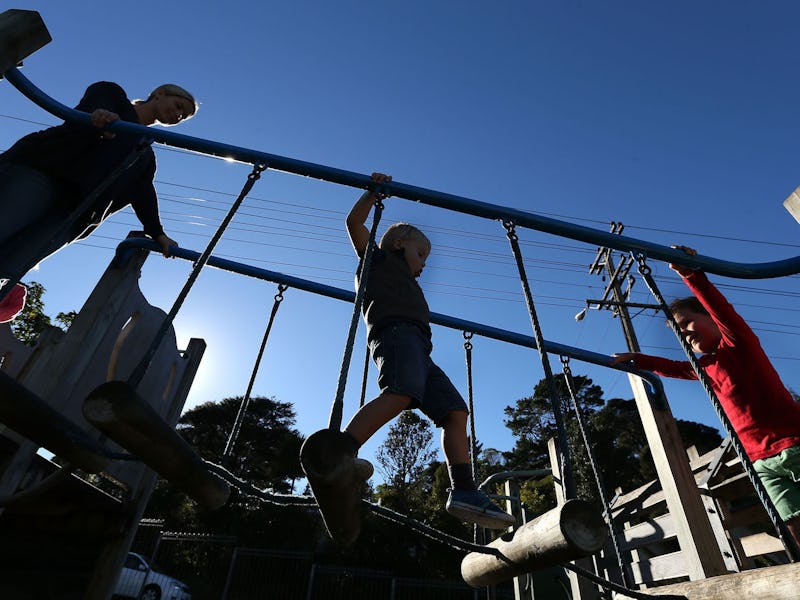Awesome Dallas Just Made Daily Recess Mandatory for Elementary Kids
Studies show it makes happier, healthier, smarter kids.

Red Rover, Red Rover, send more of your kids over to the Dallas Independent School District, where they’ll get a minimum of 30 minutes of recess per day guaranteed next year. (Note: If you’re a small child reading this on your iPad, please point out this story to your parent or guardian.)
The guarantee was approved Thursday by the Dallas ISD trustees, who agreed that, for the rest of the school year, students in Pre-K through fifth grade will get at least 20 minutes of daily recess before extending to a full half-hour in the 2016-2017 school year. Up till now only about 78 percent of the district’s elementary schools offered daily recess, and most of those schools allowed only 15 minutes or less.
“I get 15 minutes of recess. I want 100 minutes,” wise beyond her years 6-year-old Madeline Ziehm told the board before the vote. Out of the mouths of babes.
So why is this worth celebrating? Well, because as the country’s 12th-largest school district, Dallas is no small laboratory for this beautiful experiment. And the results, from everything we know about children, activity, and learning points toward outcomes that may change the scope and scale of children’s play at school.
Plenty of evidence suggests a student’s academic ability will drastically improve if we balance the classroom with some valuable, unstructured time to just cut loose. Play tag, do some four square, poke at a mudhole with a stick, whatever kid, you do you for a minute. Take Finland, where putting value on hard work and hard play (and doing away with state mandated testing, among other changes) now consistently scores in the top percentile in math, science, and reading out of 57 countries on the Programme for International Student Assessment. Kids who get a break are provably less anxious, exhibit fewer behavioral problems, act more creatively, and are more focused in class, according to studies from the LiiNK Project, which measures the impact of recesses at six public and private schools in North Texas. And that’s not even scratching the surface on physical health benefits like combating childhood obesity.
Luckily, Dallas is the latest district to hop on a bit of a trend. A daily recess bill is working its way through the state legislature in Florida, and Houston adopted a mandatory policy in 2012. We’d pick all of you guys for our kickball team.